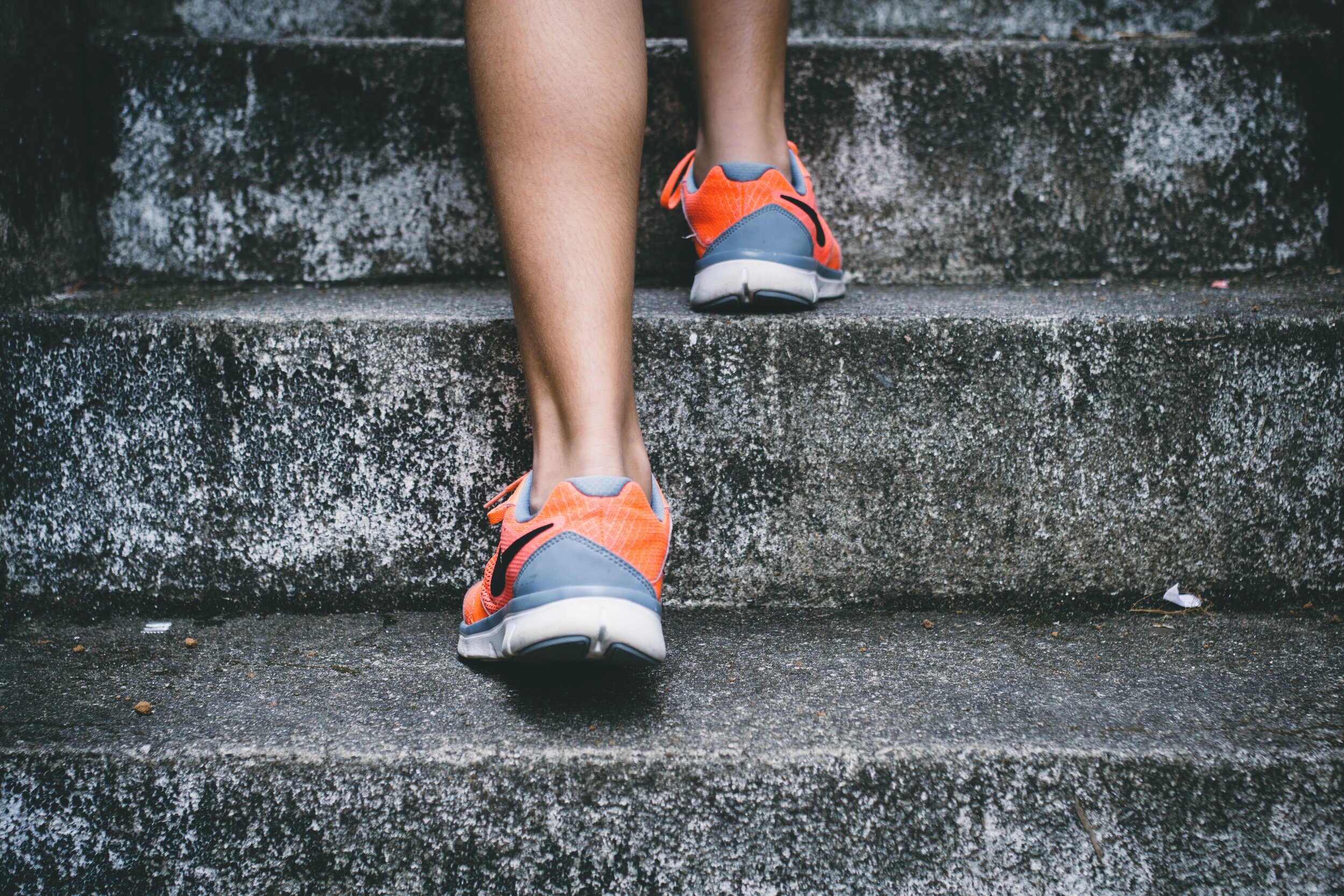Exercise and Mental Health
This guest post was written by my husband, Andy Konigsmark. This is a look inside his personal experience with mental health issues and how moving his body not only helped him overcome, but also helps him maintain his moods. I want to thank him for his vulnerability and willingness to share what can often be a stigma to people who don’t know just how many amazing people have this same struggle. He has also written a book, “Born to Backslide,” which is available on Amazon, that gives you a deeper look inside his journey to overcome.
At the tender age of sixteen, my life began to spiral out of control. I cannot point to a specific incident that caused the deterioration of my mental health. Yet, a whirlwind of events encapsulated my life at the beginning of my junior year of high school. My parents, who had been married for almost thirty years, began the painful process of divorce. My older siblings had left home. For the first time, I felt alone.
In this tumultuous period, I lost my desire for life. On the worst days, I hid under the covers in my dark bedroom, which we called the cave. Instead of going to school or hanging out with friends, I would rather hide in a dark room and sleep. When I did face the world, juvenile delinquency fueled with bouts of mania were the guiding force. Yes, episodes of mania.
One night, an uncontrollable crying spell cast the white flag for my parents. My mother knew I was dealing with more than teenage angst. With limited understanding, I explained that I could no longer control my erratic mood swings. In a twenty-four period, I could experience euphoric highs and soul-crushing lows. I did not want to live this way anymore.
Without hesitation, my parents rushed to my aid. They knew something was wrong with their baby boy; we rushed over to a family friend who was a mental health professional. The counselor suggested a child psychiatrist who specialized in adolescent depression. In the first few months of therapy, I was diagnosed with Bipolar II. For those who are unfamiliar, Bipolar II is characterized by severe depression and episodes of hyper mania. It is similar to a traditional Bipolar Disorder, except the manic episodes are not as severe.
In the hypomanic episodes, I was invincible. I loved the feeling of invincibility, but the higher I climbed the ladder, the further I would fall into depression. For many, a Bipolar disorder is like riding a roller coaster, where you chase exhilarating highs but plunge towards a depressive bottom as the mania fades. To balance the severe mood swings, I spent months testing various antidepressants to stabilize my mood. After numerous trials and errors, my body responded best to Wellbutrin.
However, the endorphin levels in my brain needed more than the daily allotment of three hundred milligrams of Wellbutrin. To stabilize my mood, I searched for natural ways to release the chemical serotonin. In the simplest terms, serotonin is a chemical in the brain that regulates mood. The best science says serotonin is responsible for healthy sexual desire, wholesome appetites, a good night's sleep, long-term memory, and appropriate social behaviors.
As a teenager, I did not understand all of the complexities of serotonin, dopamine, or neurotransmitters. But I wanted to feel better. I refused to sleepwalk through life. With the doctor's help, I would pursue the healthiest version of myself. As I embraced self-care, I learned exercise and sunshine were crucial elements to support natural release of seratonin.
I was willing to take an antidepressant to remain emotionally healthy, but I wanted more from life. I did not wish for mental health to be dependent on pharmaceuticals. This decision created a passion for exercise and adventure. As a teenager, working out and outdoor experience became a stabilizing factor. Unexpected mood swings began to disappear the more I exercised and pursued outdoor activities. Even as an adult with a psychology degree, I do not understand all of the neurotransmitter serotonin's nuances. But my emotional well-being responds positively to challenging workouts, long bike rides, and playing games with friends.
It's been almost twenty-five years since I was first diagnosed with a bipolar disorder, but I continue to fight the good fight with exercise, Wellbutrin and counseling. When I follow the program, I can avoid the roller coaster of emotions. For me, it's imperative to exercise at least five times a week. I am not in the gym every day, but my life revolves around movement. As I've eased into my forties, I pursue my passions for snowboarding, mountain biking, and hiking. These activities point my day and life towards success. By staying physically and emotionally healthy, I can be a better husband, father, and friend. Without question, exercise, sunshine, and family saved my life.


